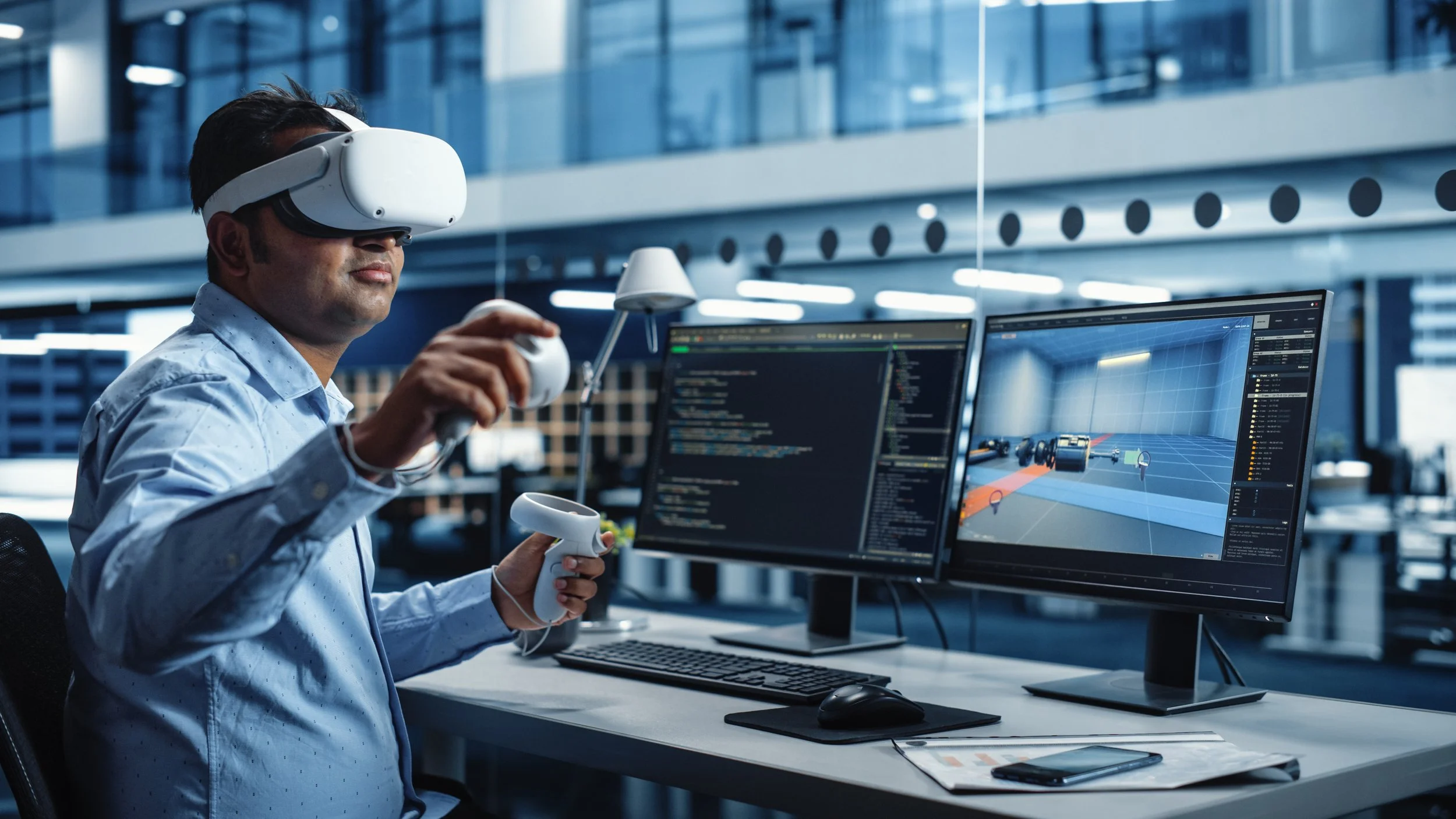VR for Industry:
Manufacturing
Virtual reality is reshaping how manufacturing companies train their workforce, design products, and streamline production. From job readiness to design validation, VR is improving precision and productivity.
Case study example
Through a partnership with Manufacturing Skills Queensland, we developed VR modules that allow high school students to step into real-world manufacturing roles. From operating welders to overseeing logistics workflows, students gain hands-on exposure to careers they might never have considered—boosting engagement and industry interest.
Why it works in VR
Manufacturing is a highly tactile, systems-based industry. VR enables learners to grasp physical processes, spatial relationships, and operational sequences intuitively. Instead of watching a video or reading a manual, users learn by doing—safely and cost-effectively.
What’s next
Integration with real-time factory data for performance analysis
Gamified, credentialed training experiences for career pathways
Collaborative VR workspaces for design review and planning
Wider use in pre-employment screening and assessment
Use cases
Workforce training: Teach safety protocols and equipment handling in immersive, hands-on environments.
Virtual prototyping: Engineers can iterate on product designs quickly and collaboratively in a shared VR space.
Assembly line simulation: Managers can test factory floor layouts and operations before real-world rollout.
Skills exploration: Introduce young people to modern manufacturing roles through interactive job previews.
Remote collaboration: Designers and stakeholders work together in virtual spaces across geographic locations.
Key benefits
Safer, faster onboarding for new staff
Reduced costs in physical prototyping and trial-and-error learning
Greater confidence in production planning
Stronger pipeline of informed, interested young workers
Improved cross-functional collaboration
Challenges VR helps solve
High cost of equipment downtime for training
Shortage of skilled labour and limited access to talent pipelines
Difficulty in visualising or testing large-scale production environments
Risk of injury in training scenarios involving heavy machinery
What we can do for you
We can design and deploy a wide range of VR solutions tailored to the manufacturing sector, including:
Safety and equipment handling training for new and existing staff
Virtual job previews to attract and inform future talent
Simulation of factory workflows and spatial layouts
Prototyping tools that support iterative product design
Remote collaboration spaces for design teams or engineers
Custom-built experiences that showcase your factory or process to clients or stakeholders
Whether it’s for internal efficiency or public engagement, we deliver immersive solutions that match real-world needs.


